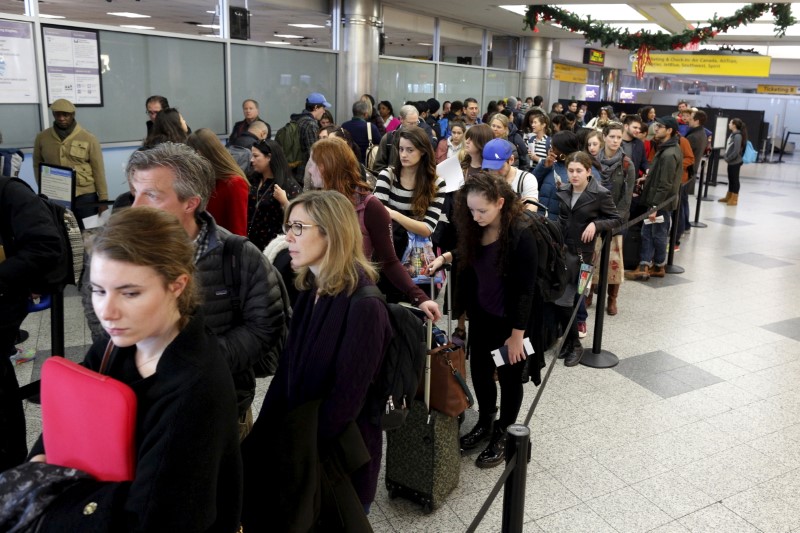BERLIN (Reuters) - Global demand for air travel rose 4.8 percent in February, thanks to lower fares and improving economies, with no major impact from an attempted U.S. travel ban, the International Air Transport Association (IATA) said on Thursday.
Tourism bodies have warned that travel to the United States could slow this year due to a perception that it is less welcoming to travelers than before.
"Although we remain concerned over the impact of any travel restrictions or closing of borders, we have not seen the attempted U.S. ban on travel from six countries translate into an identifiable traffic trend," IATA Director General Alexandre de Juniac said in a statement on Thursday.
Middle Eastern carriers, among the most affected by the attempted travel restrictions, saw demand rise 9.5 percent in February, said IATA, which represents nearly 265 airlines accounting for 83 percent of global air traffic.
De Juniac also repeated criticism of the way in which authorities brought in new restrictions on electronic devices larger than a smartphone from passenger cabins on flights from certain countries without first consulting the airline industry.
"The introduction of restrictions on the carry-on of large electronic devices was a missed opportunity and the result was a measure that cannot stand-up to the scrutiny of public confidence in the long term," he said.
Europe's aviation regulator on Wednesday voiced concern over the risk of battery fires in the cargo holds of passenger planes as a result of the ban.
Overall, capacity in February increased 2.7 percent, leading to the load factor - a measure of how full planes are - rising 1.6 percentage points to 79.5 percent. IATA said that was the highest-ever level recorded for a February.
Falling fares have put pressure on airline earnings in recent months and IATA said it estimates fares have dropped by more than 10 percent in real terms over the last year.
